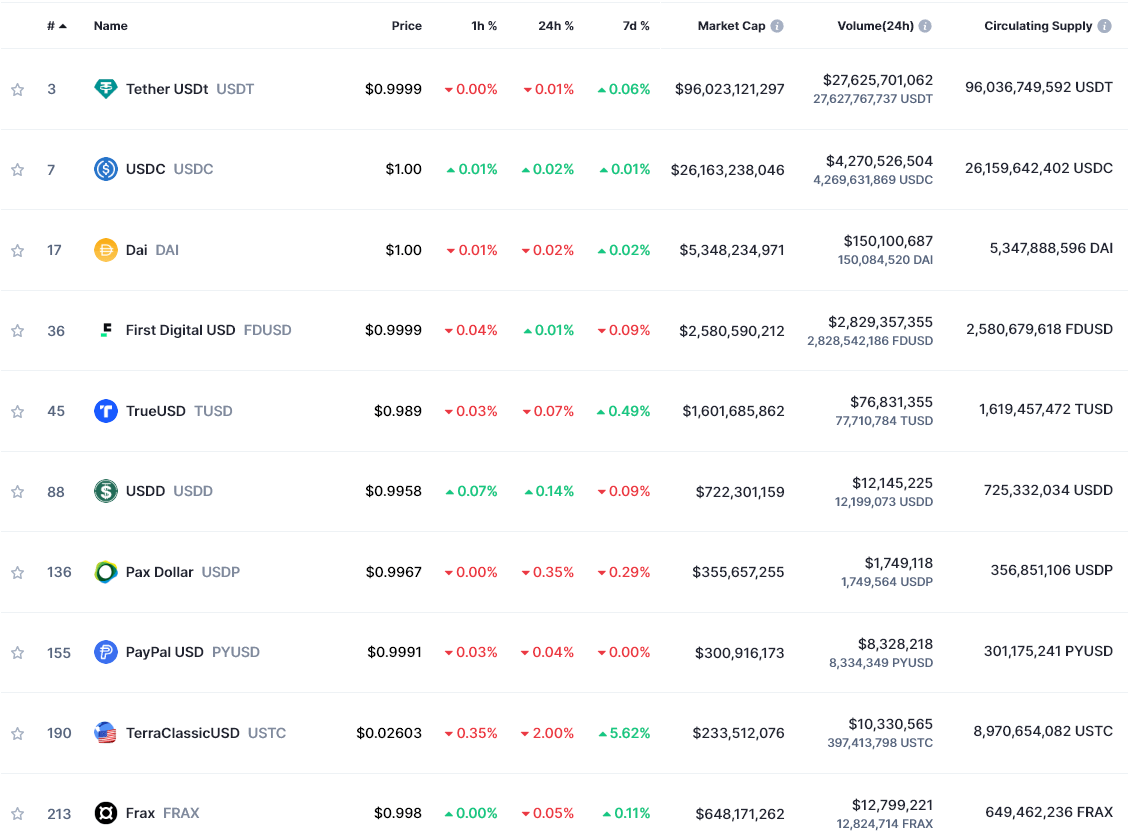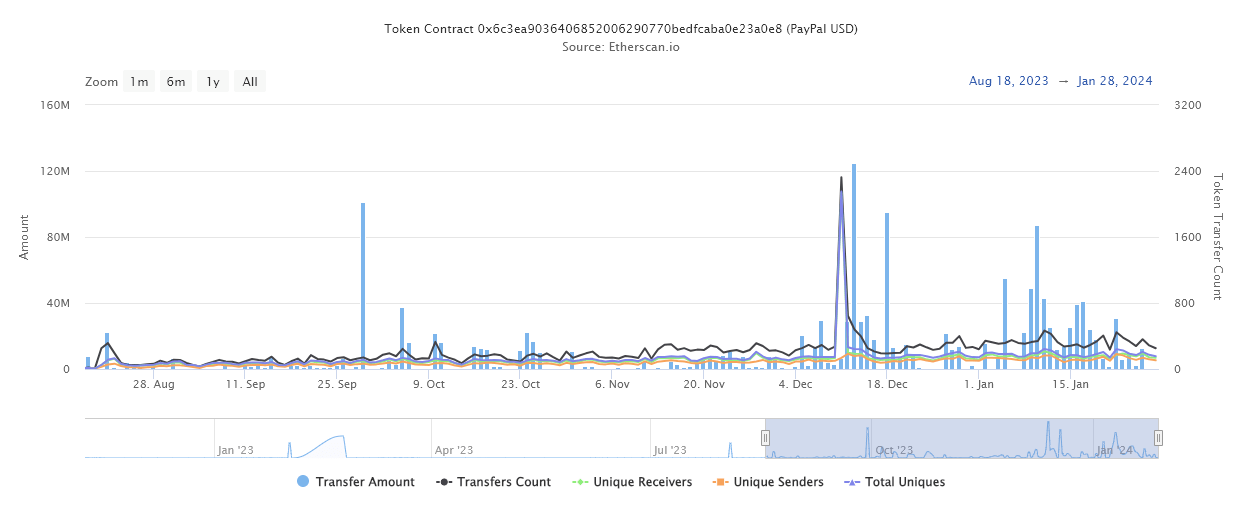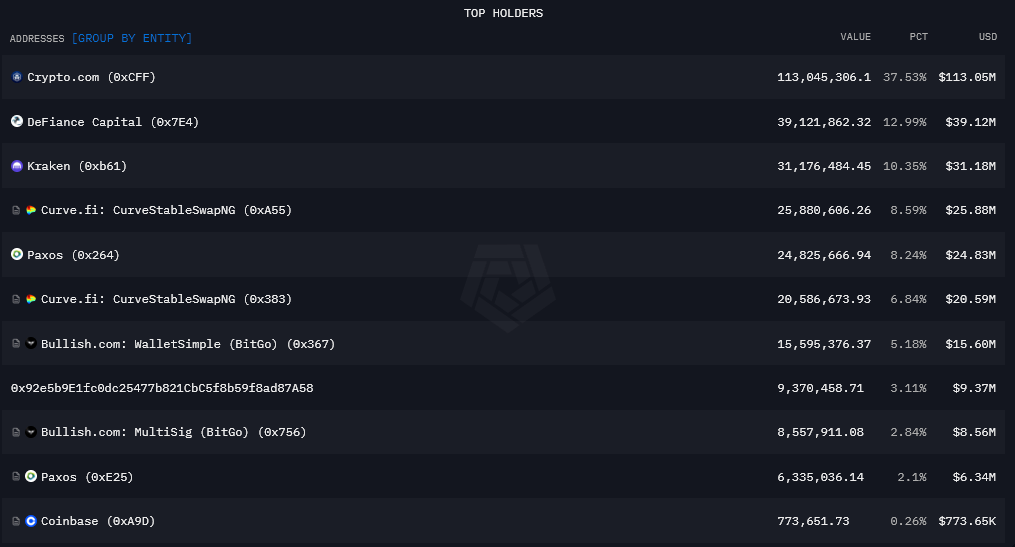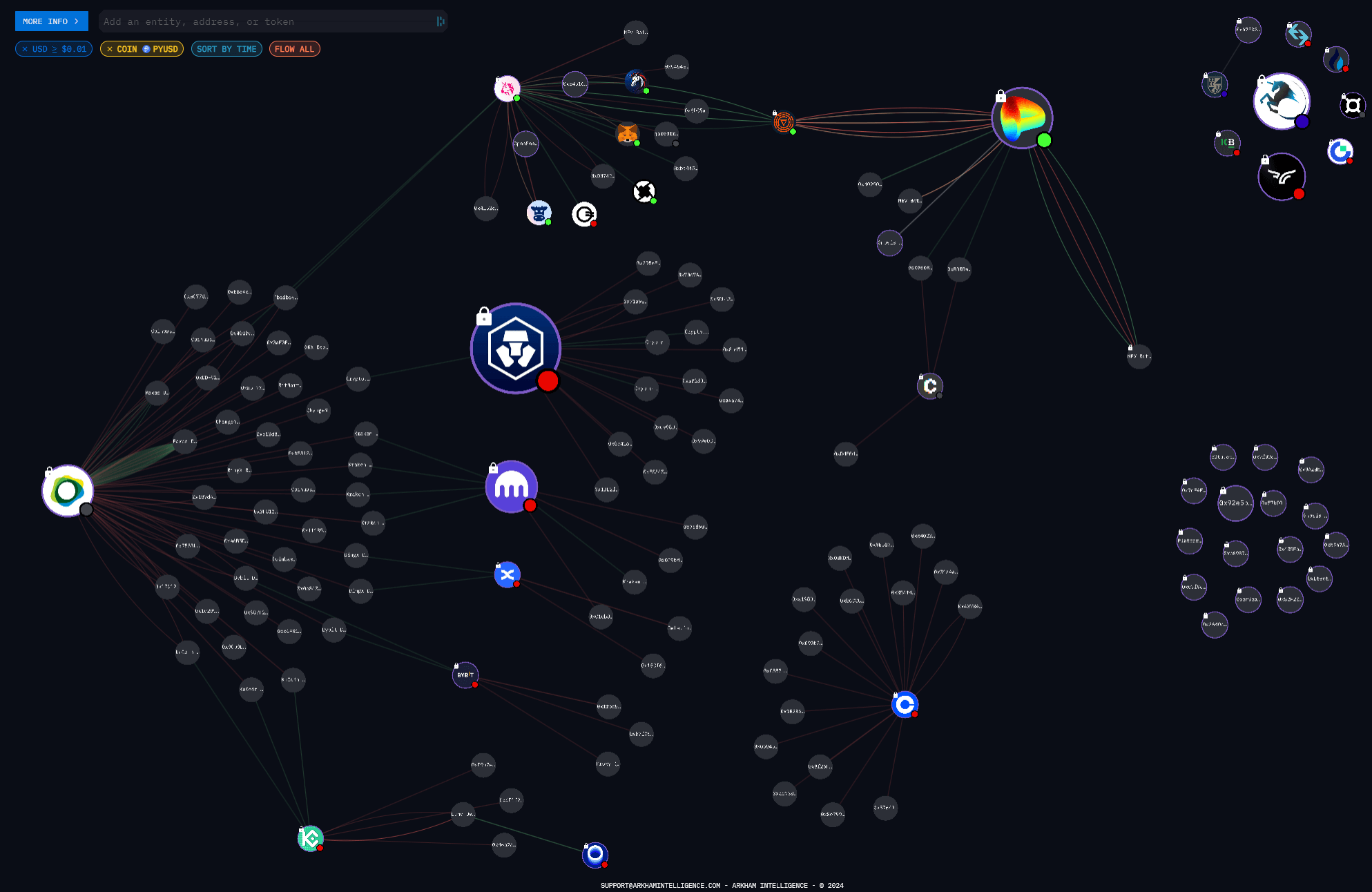ARTICLE AD BOX
PayPal’s entrance into the stablecoin market on Aug. 7, 2023, was welcomed by many in the industry, with Circle CEO Jeremy Allaire stating that competition from PayPal was ‘great to have.’
The news of the launch led to a modest 4% rise in the price of Bitcoin, and within days, exchanges were offering low-fee promotional opportunities for traders willing to utilize PayPal’s PYUSD. Before the end of August, Coinbase, Kraken, and HTX had listed the stablecoin, adding Venmo support just a month later.
Five months after its launch, PYUSD has now claimed the number eight position by market cap in the global stablecoin charts, having captured the $300 million mark around Jan. 22. However, PYUSD drops to eleventh overall when ordered by volume, with just $10 million in 24-hour trade volume. This puts it only slightly ahead of UST Classic, which, with a price 98% off its originally intended $1 peg, traded just $500,000 less over the past day.
 Stablecoins by market cap (source: CMC)
Stablecoins by market cap (source: CMC)Still, PayPal’s PYUSD climb to $300 million in value locked in five months is impressive. In addition to an increase in market cap, the token has seen steady on-chain activity, with a modest 200 – 400 transactions per day.
 PYUSD transfers since launch (source: Etherscan)
PYUSD transfers since launch (source: Etherscan)However, PYUSD has yet to break into the DeFi landscape in any meaningful way, as the below table and diagram highlight. The majority of the PYUSD liquidity sits on centralized exchanges, with Crypto.com being the largest single holder of the token at $113 million, just over one-third of the total market cap.
 PYUSD holders (source: Arkham Intelligence)
PYUSD holders (source: Arkham Intelligence)The visualization below depicts the transactions between major entities exclusively for PYUSD. Entities with more substantial PYUSD holdings are shown larger than those with smaller amounts. The entities with no logos on the far right are unknown wallets holding above $30,000. The logos in the top right depict business entity tokens, likely treasury holdings.
 PYUSD ecosystem diagram (source: Arkham Intelligence)
PYUSD ecosystem diagram (source: Arkham Intelligence)Interestingly, there are several connections between PYUSD issuer Paxos, Uniswap, and Curve. Yet, these entities do not then link into the major exchanges, suggesting the DeFi and CEX ecosystems for PYUSD are wholly separate.
While PayPal was subpoenaed by the SEC when PYUSD had half the current market cap, it was reported to have complied with requests, and little has been heard on the matter since. The announcement of the filing marked the local low for PayPal’s stock price also, with it rallying 24% since November.
Further, PayPal Ventures has recently started using the PYUSD stablecoin as a mechanism for strategic investments, using it for a stake in the institutional crypto platform Mesh. Amman Bhasin, Partner at PayPal Ventures, commented,
“As the world of financial services undergoes rapid transformation, we believe that user ownership and portability of assets will become a critical building block of product innovation, with crypto serving as the first beachhead where this is possible.”
Thus, while PYUSD still has some way to go to catch behemoths such as Circle and Tether, the debutant and web2 disruptor is certainly in the process of cementing its position in the industry.
The post What happened to PayPal stablecoin PYUSD after last year’s launch? appeared first on CryptoSlate.
.png)
 11 months ago
2
11 months ago
2








 English (US)
English (US)